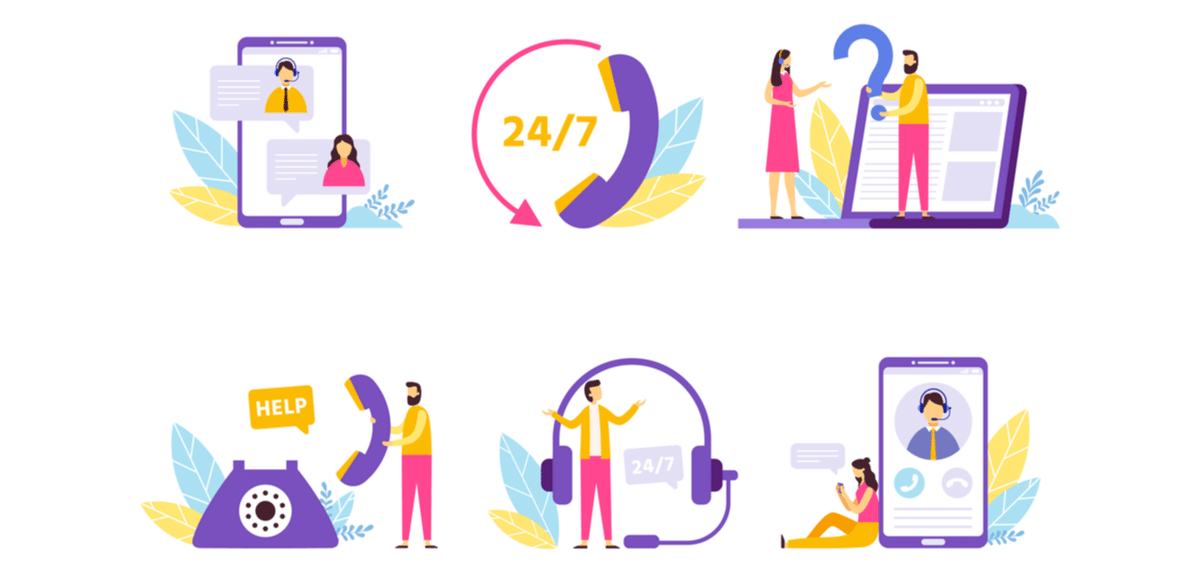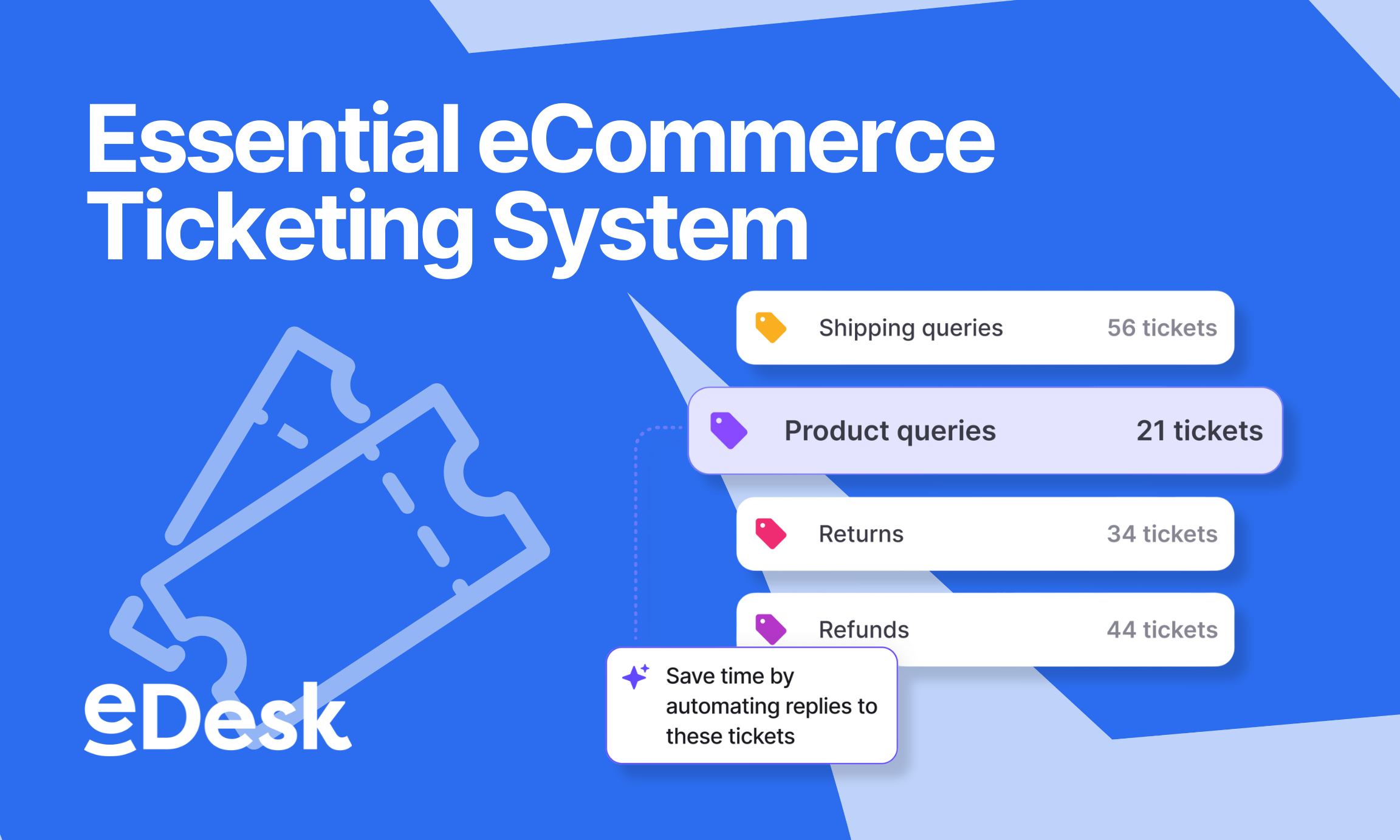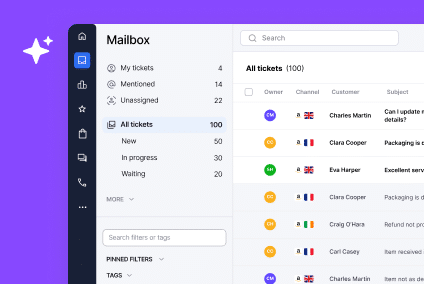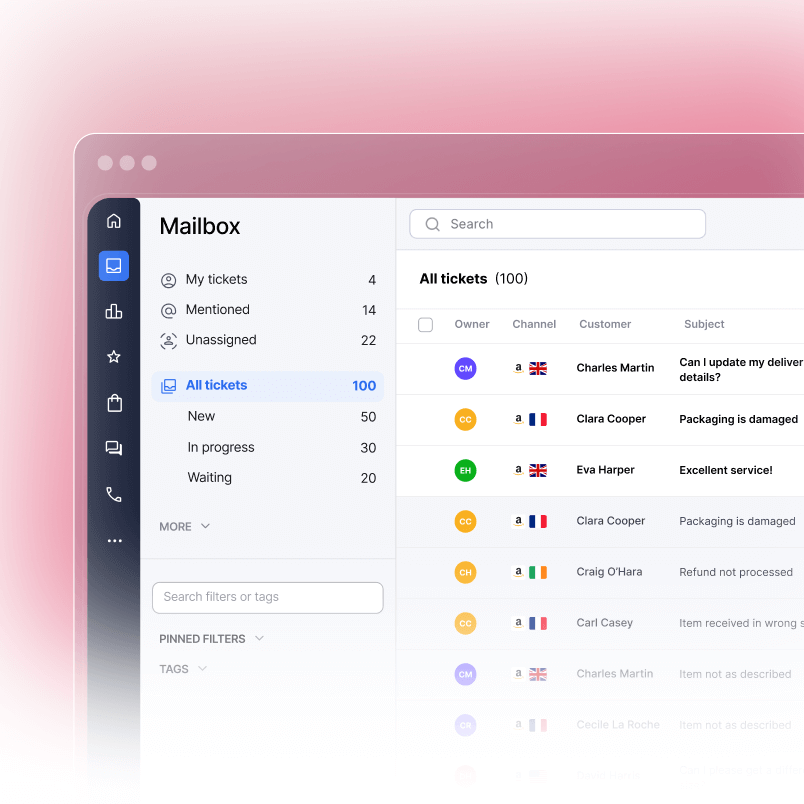Introduzione
Nell’e-commerce – dove essere reattivi, precisi e incentrati sul cliente è tutto – fornire un’assistenza clienti rapida ed efficiente è a dir poco fondamentale. È qui che entra in gioco un solido sistema di ticket di assistenza, che permette di gestire le richieste dei clienti in modo rapido ed efficace, aumentandone la soddisfazione e la fedeltà.
Cos’è un sistema di ticket di assistenza?
Un sistema di ticket di assistenza è uno strumento che converte le richieste dei clienti provenienti da vari canali – come e-mail, live chat e social media – in ticket organizzati. Questo sistema permette ai team di assistenza di tenere traccia, dare priorità e risolvere i problemi in modo sistematico, in modo che nessuna richiesta dei clienti passi inosservata.

Perché l’eCommerce ha bisogno di un sistema di ticketing dedicato
Le aziende di commercio elettronico devono affrontare sfide uniche che richiedono uno strumento di biglietteria per il commercio elettronico specializzato:
- Integrazioni dell’ordine: Connettiti senza problemi con piattaforme come Shopify, Amazon ed eBay per accedere ai dettagli degli ordini direttamente dai biglietti.
- Automazioni per problemi comuni: Implementa regole per gestire automaticamente le richieste più frequenti, come gli aggiornamenti sullo stato delle spedizioni o le richieste di reso.
- Supporto multicanale: Consolida le interazioni con i clienti provenienti da diverse piattaforme in un’unica casella di posta elettronica casella di posta condivisa, semplificando la comunicazione.
- Gestione degli SLA: Monitorare e applicare gli accordi sul livello di servizio per mantenere elevati gli standard di assistenza.
- Automazioni dell’helpdesk: Utilizza l’intelligenza artificiale per automatizzare le attività di routine, consentendo agli agenti di assistenza di concentrarsi su problemi complessi.
- Metriche dell’assistenza clienti: Ottieni Approfondimenti sulle prestazioni del team e sulla soddisfazione dei clienti attraverso analisi dettagliate.
Caratteristiche principali di un efficace strumento di biglietteria per l’e-commerce
Quando scegli un software di ticketing per help desk, considera le seguenti caratteristiche:
- Cruscotto unificato: Gestisci tutte le interazioni con i clienti in un unico posto per una gestione efficiente.
- Flussi di lavoro personalizzabili: Personalizza il flusso di lavoro della gestione dei ticket per adattarlo ai tuoi processi aziendali.
- Capacità di Integrazione: Assicura la compatibilità con le piattaforme e gli strumenti di e-commerce esistenti.
- Scalabilità: Scegli un sistema che possa crescere insieme alla tua azienda, adattandosi a volumi crescenti di biglietti.
- Interfaccia facile da usare: Scegli un software intuitivo e facile da adottare per il tuo team.
Vantaggi dell’implementazione di un sistema di ticket di assistenza
L’adozione di un sistema di email ticketing specializzato offre numerosi vantaggi:
- Tempi di risposta migliorati: Risolvi rapidamente i problemi dei clienti, migliorando la loro soddisfazione.
- Organizzazione migliorata: Tieni traccia di tutte le interazioni con i clienti in modo sistematico.
- Decisioni guidate dai dati: Utilizza le analisi per identificare le tendenze e migliorare le strategie di supporto.
- Aumento dell’efficienza: Automazioni per compiti ripetitivi, liberando risorse per attività più critiche.
Iniziare
Per le aziende di e-commerce che desiderano migliorare l’assistenza ai clienti, investire in un sistema di ticket di assistenza dedicato è essenziale. Strumenti come eDesk offrono soluzioni complete e adatte alle esigenze specifiche dei rivenditori online, per offrire un servizio clienti efficiente ed efficace.
👉 Prenota una dimostrazione dal vivo e scopri come eDesk può trasformare il tuo team di assistenza.




